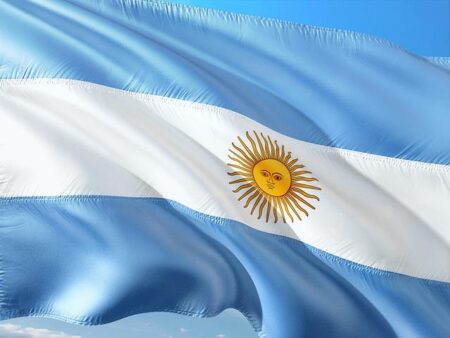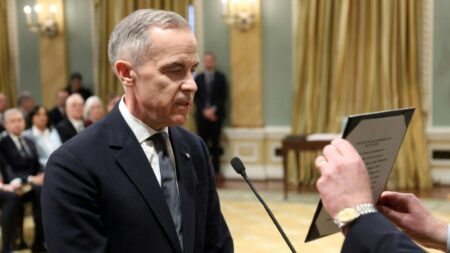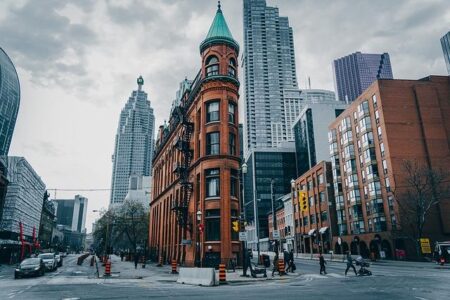As global markets brace for shifts, tracking China’s economy and its commodity needs has become increasingly challenging. Analysts cite complexities in data accuracy and evolving consumption patterns that obscure insights vital for forecasting.
Browsing: Economy
Rising coffee prices can be traced back to Brazil’s coffee farms, where adverse weather, labor shortages, and heightened production costs are driving up expenses. As climate change intensifies, understanding these factors is crucial for consumers.
Argentina’s economy is poised for continued growth as negotiations for a new accord with the IMF progress. This potential agreement aims to stabilize economic conditions, fostering investor confidence and addressing ongoing challenges in the nation‚Äôs financial landscape.
China is ramping up efforts to boost its declining birth rate by offering free milk and childcare subsidies to families. This initiative aims to alleviate financial burdens and encourage couples to have more children amid demographic challenges.
In a historic political shift, Mark Carney has been sworn in as Canada’s new prime minister, succeeding Justin Trudeau. The former Bank of Canada governor now faces pressing issues, including economic recovery and climate change initiatives.
In a recent Bloomberg article, Escriv√° highlighted Spain’s appeal as a prime location for settlement, citing its robust quality of life, vibrant culture, and favorable economic environment. This sentiment reflects the increasing interest in Spain as a destination for expatriates.
Brazil’s economy is projected to grow by 3.4% in 2024, driven by robust domestic demand. However, recent indicators of year-end weakness suggest that further interest rate hikes may be limited, prompting analysts to reassess monetary policy outlooks.
Spain’s economy is projected to grow by 2.7% in 2025, driven primarily by strong private consumption, according to the central bank. This optimistic forecast highlights resilience in consumer spending as the country navigates post-pandemic recovery.
The Chair of the UK’s Payment Systems Regulator has described the potential abolition of certain regulations as a “pragmatic next step.” This move aims to streamline payment processes and enhance innovation within the sector, signaling a shift towards modernized financial systems.
The United Kingdom, comprising England, Scotland, Wales, and Northern Ireland, boasts a rich history and diverse culture. With London as its capital, the UK plays a significant role in global politics and economics, influencing trends worldwide.
Mark Carney has emerged as the frontrunner to succeed Justin Trudeau as Canada’s prime minister, according to Reuters Canada. The former Bank of England governor’s leadership and economic expertise position him as a strong candidate in the upcoming elections.
As China’s annual Congress concludes, leaders face lingering uncertainties about revitalizing the economy amid slowing growth. Analysts urge a focus on innovation and structural reforms to address pressing challenges and stimulate sustainable development.
Morocco‚Äôs footwear exports to Brazil have surged by an astonishing 3,300%, propelling the North African nation into the top 20 footwear exporters to the South American market. This remarkable growth underscores Morocco’s expanding role in global trade.
In response to recent U.S. tariffs, Canada has announced $29.8 billion in counter-tariffs targeting key American goods. This escalation in trade tensions underscores ongoing disputes and aims to protect Canadian industries amidst rising economic pressures.
As Trump tariffs reshape global trade dynamics, India stands poised to excel in Asia. With a burgeoning domestic market, a strong manufacturing base, and strategic alliances, India is uniquely positioned to leverage these tensions for economic growth and opportunity.
The recent tariff rebuff highlights ongoing tensions in Australia’s handling of relations with the Trump administration. This pivotal moment fuels debates on the government’s trade strategies and diplomatic approach as the international landscape shifts.
India is grappling with economic uncertainty as escalating US tariff wars raise global concerns. The increasing trade tensions threaten to disrupt supply chains and impact key sectors, prompting calls for robust policy measures to safeguard India’s growth trajectory.
In a surprising move, President Trump announced an increase in tariffs on Canadian imports, sending shockwaves through global markets. Analysts warn that escalating trade tensions could impact economic stability and consumer prices on both sides of the border.
France is sounding the alarm on rising insurance costs driven by climate change, as catastrophic weather events increasingly impact property and infrastructure. Authorities urge a reevaluation of risk assessments to bolster financial protection for at-risk communities.
Japan’s largest union group is calling for the most significant wage increase since 1993, emphasizing the need to combat rising living costs and enhance worker livelihoods. This demand comes as inflation pressures mount, prompting a potential shift in corporate wage policies.


















